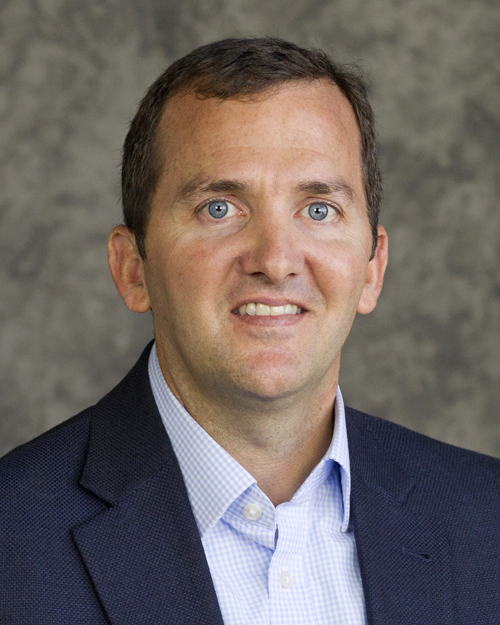More than 400 military veterans are studying at the University of Missouri–St. Louis this fall – a 17 percent uptick from last year – and support for those student veterans is on the rise as well.

Associate Teaching Professor and U.S. Army veteran Jim Craig has been at the center of UMSL’s efforts to increase support for the university’s growing student veteran population. He will moderate a public discussion on campus on Oct. 21. (Photo by August Jennewein)
The busy, student-veteran-staffed Veterans Center and new Department of Military and Veterans Studies have something to do with that. So does retired U.S. Army Lt. Col. Jim Craig, associate teaching professor and chair of the young department.
Yet even as the ranks of student veterans are growing at UMSL, veterans and service members represent a shrinking percentage of the American citizenry as a whole. When so few choose military service, how can the society and the military stay connected?
On Oct. 21, Craig will moderate a conversation tackling that question. J. Michael Haynie, executive director of the Institute for Veterans and Military Families at Syracuse University, and three panelists will join Craig for a presentation titled “Assessing the Impact of Our All-Volunteer Military: Finding Connections with Our Service Members and Veterans.”
The free, public discussion is this fall’s Hellen & Will Carpenter Series on Contemporary Issues in American Society event, with a 6:30 p.m. reception preceding the 7 p.m. presentation. It will take place in the J.C. Penney Building lobby and auditorium.
Craig, who has worked closely with many St. Louis service members and veterans over the years, spoke with UMSL Daily about the Carpenter Series topic and UMSL’s most recent efforts to attract and support student veterans.
What makes this topic so timely?
In 1973, our country decided to fill its military ranks exclusively with volunteers. That policy produced the smartest, fittest, bravest and most effective military the world has ever seen. It also produced a society disconnected from its service members. In essence, the potential for military service ceased being an obligation of American (male) citizenship and became a right, to be chosen or declined, and our society subtly changed.
Now, for most, the choice is clear: Let someone else do the serving. Forty-one years later and after 13 years of continuous fighting, the military (and its corresponding veteran population) is a very small percentage of our population and a separation of understanding has ensued. Clearly, separation between our military and veterans, and the rest of our society is detrimental to both parties, but it seems inevitable. Is it? Can we change the downward trajectory? With this Carpenter Series event, we will try to address those questions.
In what ways do you see UMSL’s recent efforts to attract and support student veterans as contributing some solutions to these broad challenges?
UMSL has always been a great choice for veterans pursuing higher education. It provides a quality, research-based education in an urban location at a public price tag. And it is connected to jobs. But our recent efforts have taken UMSL’s commitment to veterans a step further.
Through the Veterans Studies Program, UMSL has become a national leader in teaching students about the veteran experience in America – veterans and non-veterans in the classroom, together. With the programs we have developed, like the minor in veterans studies, I hope to help veterans more clearly understand their own experience and shift how the veteran and the non-veteran communities relate to each other.
How can members of the campus community contribute to greater understanding? And St. Louis as a whole?
This is a common question and I’ll tell you that the answer is easy to say, but harder to do: Know a veteran. I am not talking about saying “thanks for your service,” in passing. I am talking about making a real connection. Ask about her or his service. Learn what it was, where it was, and what was important about it. Ask about families and a veteran’s life outside of service. Then listen and care.
Quick note: Veterans are not blameless in the disconnect either. They can’t stand passively and complain that nobody understands. Veterans must reflect on their service and talk to others about that service. Be proud and be honest, but don’t be shy.
How has your own experience as a longtime service member informed the work you are doing now?
I have been in a uniform for more years of my life than I haven’t, so I can clearly relate to service members. But I only became a veteran 16 months ago. I am still reflecting on my own service and learning how to share my experiences with others in a positive and productive manner. What has helped me the most has been teaching classes about veterans. The exercise of envisioning, building and then teaching a class really helped me understand the history of veterans in our society and the issues many veterans face, and it has forced me to reflect more deeply on my experiences and talk about my service.















